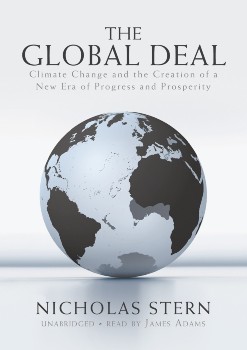President Barrack Obama has rightly given the fight to reverse global warming a high priority, and he has the backing of scientists worldwide. He sees the coming years as critical if the global community is to curtail the increasing use of hydrocarbons that is rapidly reducing the Earth’s protective ozone cover, the cause of the growing global warming. To help usher in this reduction in hydrocarbons; he has called for the increasing use of renewable energy, and, of course, energy conservation.
A critical point in this effort will come later this year at an international conference in Copenhagen that is to set limits on greenhouse gas emissions. Obama has pledged full U.S. participation in the session designed to replace the 1997 Kyoto Protocol, when nations agreed to major cutbacks in greenhouse gas emissions. The United States never ratified that protocol, however.
In the 12 years since Kyoto, much has changed: there seems to be a rising worldwide realization of the need to act, and soon. Many nations are already implementing new emission restrictions.
The case for action is nowhere better explained than by Nicholas Stern in The Global Deal: Climate Change and the Creation of a New Era of Progress and Prosperity (Public Affairs Press). Stern is one of the world’s foremost experts in climate change, holding a chair in economics and government at the Grantham Institute on Climate Change at the London School of Economics. He also is a former chief economist at the World Bank and the European Bank of Reconstruction and Development.
Stern explains in simple, yet detailed, terms the growing danger of the buildup of greenhouse gases and what the world can do to stop this coming global disaster.
“We are fast approaching a crisis which requires decision and action now, before we fully experience the dangers we are causing. And let us be clear, these dangers are of a magnitude that could cause not only disruption and hardship but mass migration and thus conflict on a global scale. They concern us all, rich and poor,” he writes.
Most of the damage, he explains, will not come from heat, but from water, or lack thereof: storms, droughts, floods and rising sea levels will cause problems across the globe. There will be mass migrations to high grounds, the world’s economies will be threatened, and there will be global instability. What to do?
Stern says there must be substitutions for the culprits oil and gas. Another contributor is deforestation, which destroys the vast Amazon basin jungles that are able to absorb greenhouse gases.
To replace the sources of today’s dirty energy, Stern cites the existing technology to generate electricity with very low carbon or no carbon emission: hydroelectric, wind, solar, biomass, nuclear, geothermal, wave and tidal.
“Can we get there,” Stern asks? Yes, but not easily.
He includes in the solutions “cap and trade,” in which industrial pollution limits are set and firms emitting below their limit can “sell” their savings to firms unable to meet their limits. The United States has made a start here, though meager.
Along with these solutions, of course, is conservation: some will come in the long-term, such as designing new neighborhoods accessible for mass transit, but other steps can be immediate, such as replacing an incandescent bulb with a compact fluorescent version and making sure homes are properly insulated.
And once someone makes a successful start at conservation – Wal-Mart, for instance — it will spur others. Stern writes, “There is no substitute for seeing others do something successfully.”
An effective global deal to fight climate change would include binding agreements by developed countries to reduce emissions by 20% to 40 % by 2020 and by at least 80% by 2050; developing countries to take on emission reduction by 2020; global cap and trade agreements; public funding to halt deforestation, and a program to share technologies to develop solar, wind and other renewable energy.
With Obama in the White House and other major polluting nations, especially China, beginning to realize the growing climate threat, Stern is optimistic an agreement can be reached in Copenhagen.
But, he warns, there will be many countries opting for short-term solutions and many looking only inward to their own national interests. He says that “sustained political pressure from the people of all countries who understand the nature of the challenge and how to respond is crucial.”
Stern writes that there is a short window of opportunity and the world will soon determine whether it can “create and sustain the international vision, commitment and collaboration which will allow us to take this special opportunity and rise to the challenge of a planet in peril.”




